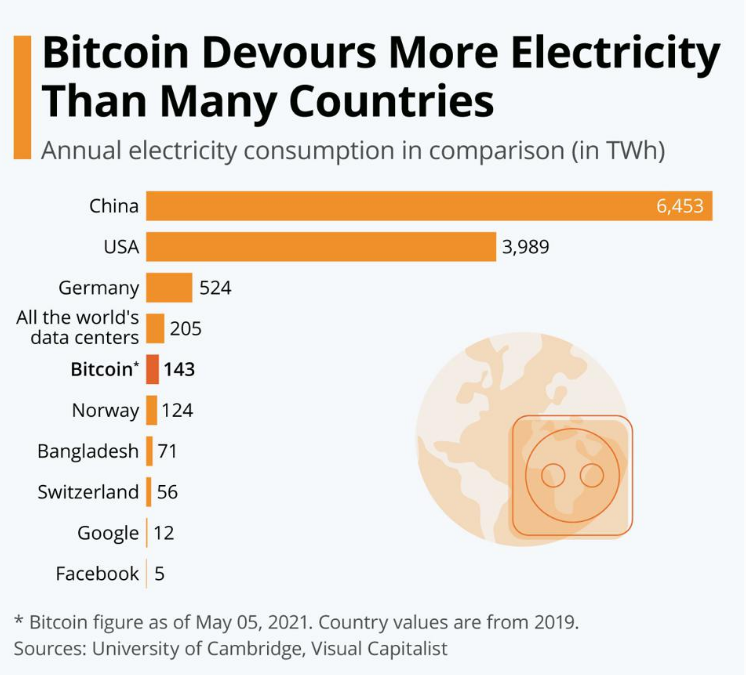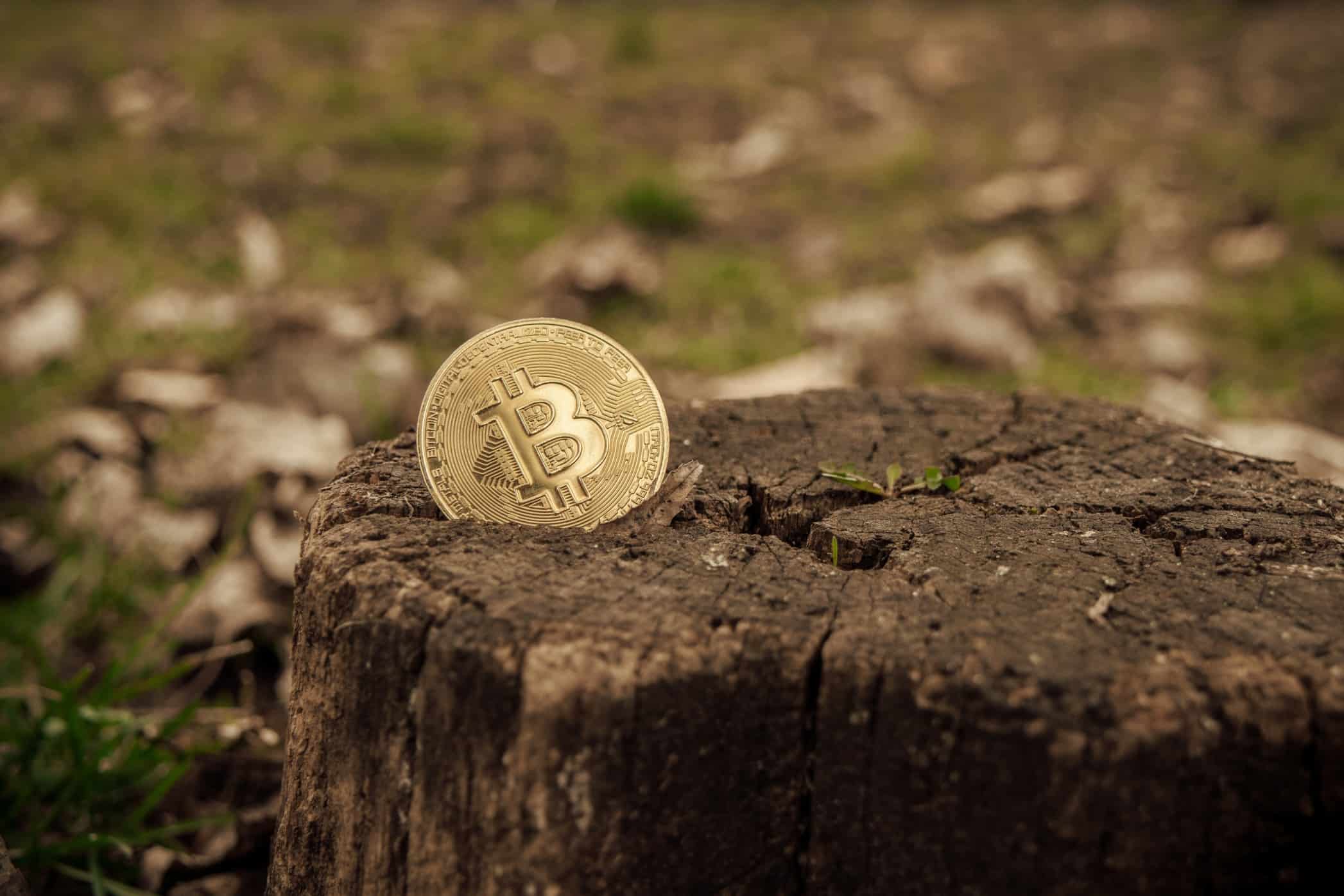Much has been said about the environmental footprint of Bitcoin, both for energy consumption and carbon emissions. Even weeks after Bitcoin’s genesis block was mined, precursor Hal Finney (1956-2014), the first to run Bitcoin software after Satoshi Nakamoto, posted the following statement on Twitter: “Thinking about how to reduce CO2 from a widespread implementation of Bitcoin”.
As cryptocurrency gains popularity, so does the debate over the environmental impact of Bitcoin mining, an activity described as “the process of spending computing power to process transactions, secure the network, and keep everyone in the system synchronized together”, according to the website Bitcoin.org.
Despite criticism against Bitcoin mining from an environmental point of view, more and more research reports that this activity is one of the most focused on renewable energies, and not only that, but that it takes advantage of energy resources that otherwise they would be wasted, such as surplus energy from hydroelectric plants or natural gas that is released from oil extraction, as announced by the oil company Equinor in August last year.
Justification for Bitcoin’s power consumption

One of the most common criticisms of Bitcoin mining is that the network consumes as much or more electrical energy than entire countries, according to figures provided by the University of Cambridge. Headlines such as “Bitcoin already consumes more electricity than Argentina” are an example of this. At the same time, the University of Cambridge also has reported that the electricity consumption of Bitcoin is less than 1% of worldwide consumption.
As Parker Lewis from Unchained Capital mentions in his article “Bitcoin does not waste energy”, as long as the role of money for society and the problem that Bitcoin tries to solve is not understood, the importance of securing this network cannot be understood: “Put a price on economic stability and the economic freedom a stable monetary system provides; that is the true justification for the amount of energy bitcoin should and will consume. Everything else is a distraction”, ”says Lewis. Therefore, mining Bitcoin is not an activity that wastes energy, but a justified consumption for economic stability.
Bitcoin’s carbon footprint and energy sources
Apart from energy consumption, another criticism towards Bitcoin mining is carbon emission. At this point, it plays an essential role how polluting the energy sources are used to produce the energy that Bitcoin consumes, as explained three years ago by the researcher Katrina Kelly-Pitou of the University of Pittsburgh, specialized in technologies of clean energy.
Kelly-Pitou indicated that the topic of discussion around Bitcoin should not be about how much energy it consumes, but rather to focus on carbon emissions from the ways of generating energy, stressing that not all sources have the same impact on environment: “By talking specifically about just the consumption of energy alone, I believe many fail to understand one of the most basic benefits of renewable energy systems. Electricity production can increase while still maintaining a minimal impact on the environment. Rather than focusing on how much energy bitcoin uses, the discussion should center around who indeed is producing it – and where their power comes from”.
Bitcoin mining is portable
Kelly-Pitou made a comparison between Bitcoin mining in China, where carbon supplies more than 50% of the country’s electricity, and mining in countries like Iceland, where there is abundant supply of hydroelectric and geothermal energy, both of which are very low carbon emissions and, in addition, due to the abundance of resources and low electricity rates, they become attractive destinations for Bitcoin miners.
If something has become quite clear with the recent migration of chinese Bitcoin miners to countries such as Kazakhstan, the United States, Canada, after the state repression in their country of origin, it is that Bitcoin mining is a portable industry, which allows its operators to change locations, seeking to establish themselves in places where there are abundant renewable energy resources and low carbon emissions; cheap electricity rates and a friendly political environment.
And while China prohibits Bitcoin mining on its territory, there are other countries such as the United States, Kazakhstan and El Salvador that are seeing this activity as an investment opportunity. A recent example of this was an intervention by the US Senator Cynthia Lummis, who addressed individuals and companies in the cryptocurrency mining sector to invite them to settle in Wyoming.
Likewise, last June, the president of El Salvador, Nayib Bukele, said that he had given guidelines to the state geothermal energy company to create a Bitcoin mining plan, in order to offer facilities for this activity, with energy cheap, clean and renewable. This country became the first in the world to adopt bitcoin as legal tender, last month.
Bitcoin mining, an increasingly environmentally friendly industry
The vast majority of Bitcoin miners around the world take renewable energy sources into account for their operations, so it could be said that Bitcoin mining is an increasingly sustainable industry.
According to a September 2020 report from the University of Cambridge, based on companies from 59 countries, 76% of Bitcoin miners use renewable sources as part of their ‘energy mix’, and 62% use hydroelectric power for their operations. Likewise, this research reported that 39% of total energy consumption for mining is powered by renewable sources.
In this vein, companies dedicated to Bitcoin mining have announced plans to build mining farms that are supplied with solar energy, wind and natural gas; and others have communicated their intention to offset their carbon emissions and become carbon neutral companies.
In a more recent report, from the Bitcoin Mining Council, it was exposed that 56% of Bitcoin miner operators use energy from sustainable sources; Survey participants conducted by the organization founded by Michael Saylor and Elon Musk account for 32% of Bitcoin’s processing power on a global scale.
This report, published earlier this month, not only reaffirms that Bitcoin mining uses a negligible amount of energy, but also highlights that this activity “is rapidly becoming more efficient, and is powered by a higher mix of sustainable energy than any major country or industry”.






